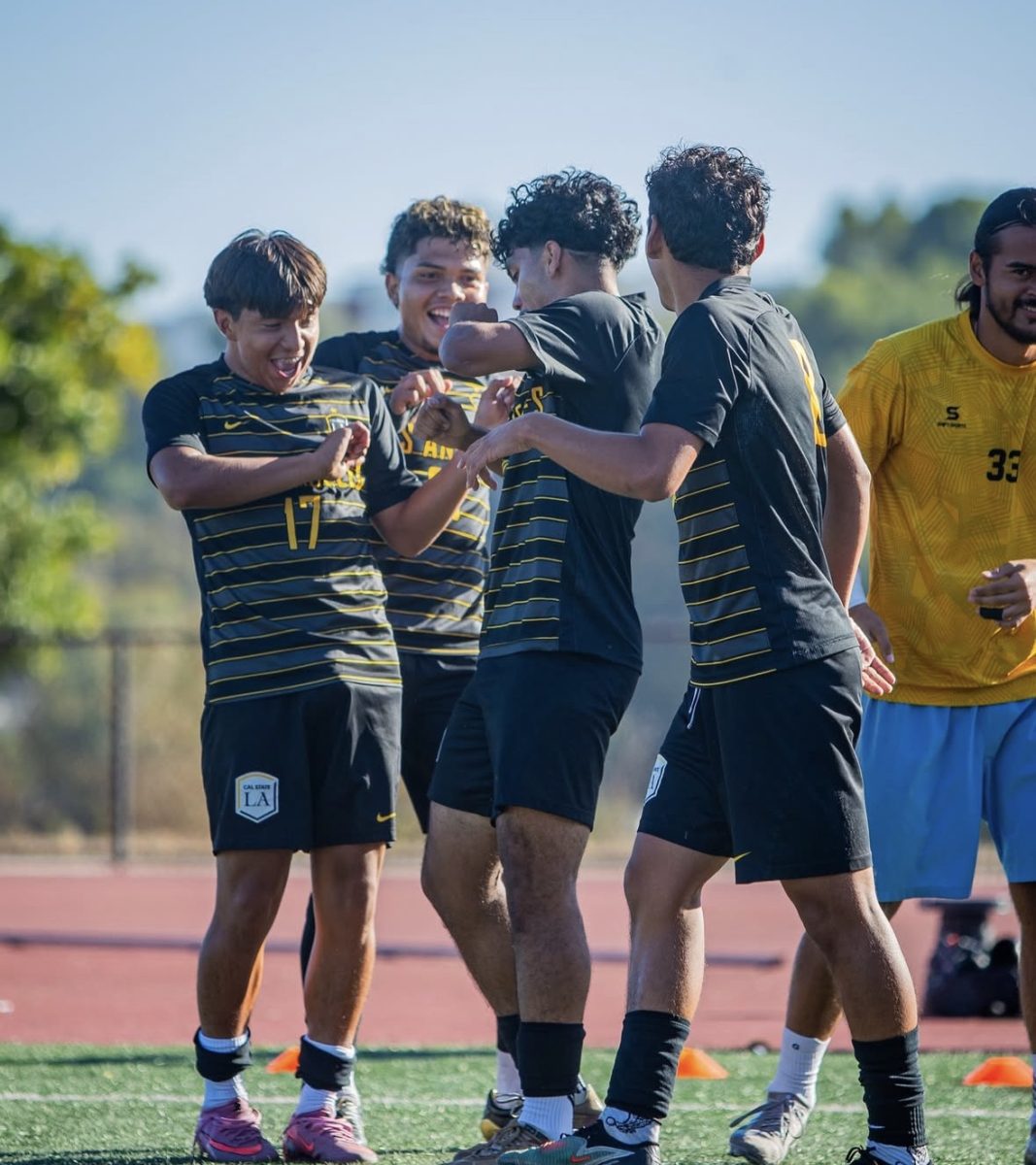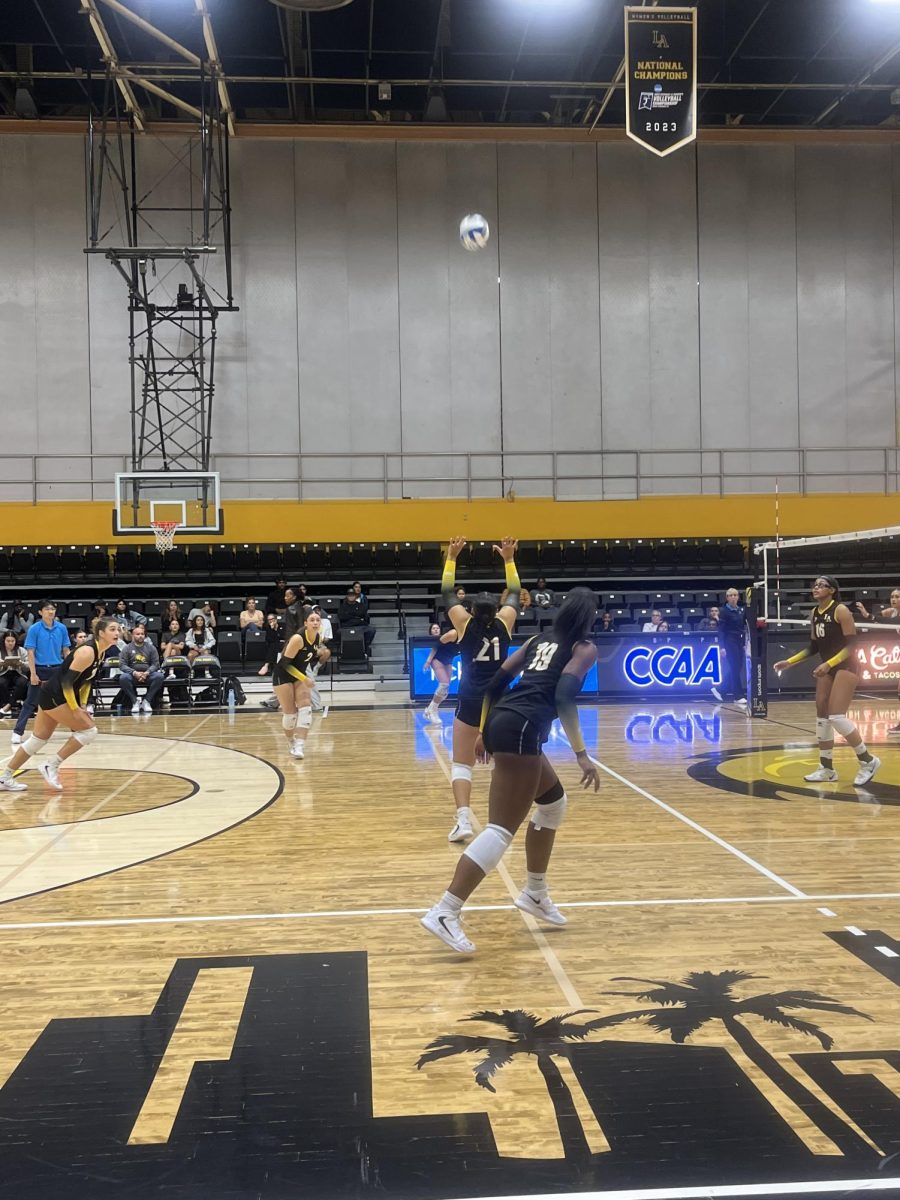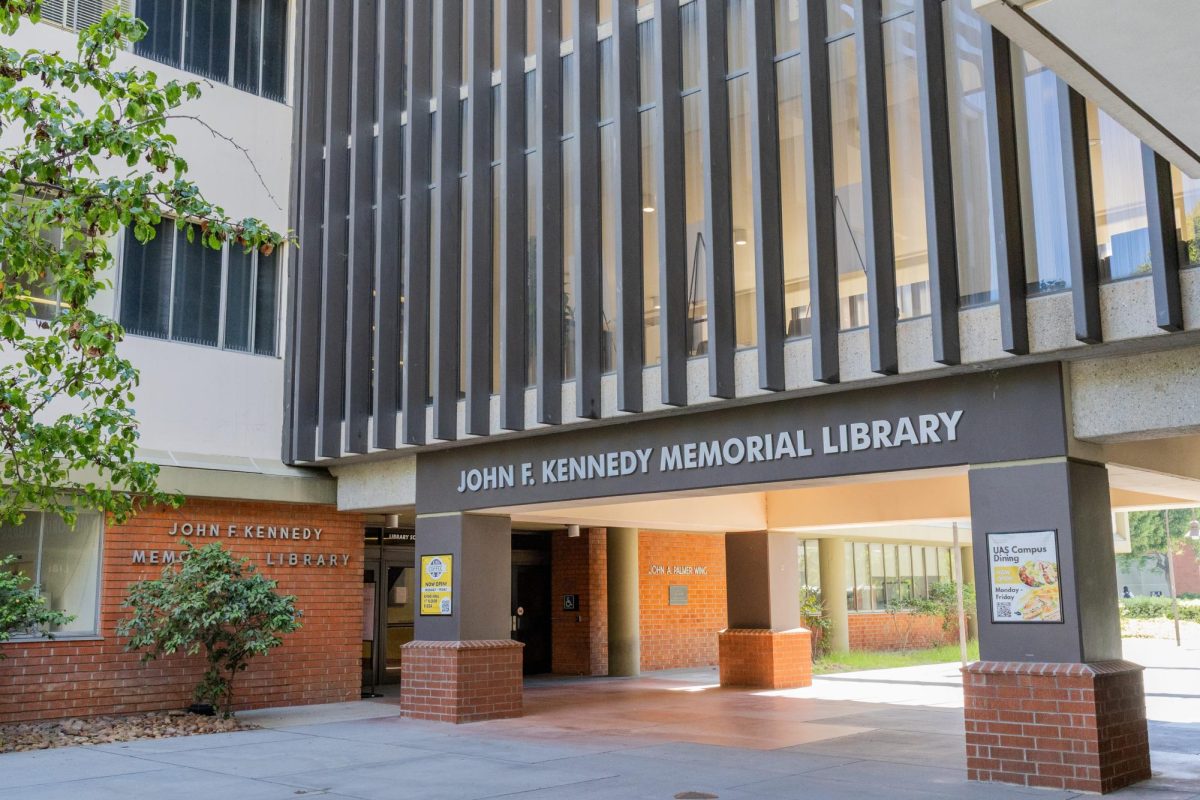
(Teamsters Local.2010)
Strikes, signs, petitions, pickets, votes and walkouts. It’s hard to miss the buzz on campus these days as several different groups of workers organize to protest working conditions, determined to secure better wages and benefits.
Just last week, 1,100 Teamsters workers made waves across 23 CSU campuses statewide, including Cal State LA, calling for fair labor practices and a good-faith contract with the university.
But other workers — like the California Faculty Association and CSU Student Assistants — are making similar demands. Each group is in a different phase of labor action, with some just beginning to unionize, while others have already voted to authorize a strike or are carrying one out.
For students, many of whom are struggling to keep their heads above water while balancing work and a busy school schedule, it can be difficult to keep track of the winners and losers as tensions rise between workers and the university. Because of this, the University Times has compiled a timeline of recent labor movements at Cal State LA.
The California Faculty Association
From “strike ready” to the picket line, the CSU’s biggest union, the CFA — which is made up of university professors and lecturers, coaches, librarians and other faculty — had been posturing to temporarily cease work since August over stalling contract negotiations. They demand:
- A 12% pay raise to stay ahead of inflation.
- Pay equity and raising the pay floor for lowest-paid faculty.
- Manageable workloads that allow for more support and engagement with students.
- More counselors to improve students’ much-needed access to mental health counseling.
- Expanding paid parental leave.
- Accessible lactation and milk storage spaces for lactating faculty.
- Safe gender-inclusive restrooms and changing rooms.
- Safety provisions for faculty interacting with university police on our campuses.
The bargaining process was already hitting serious road bumps when then CSU Interim Chancellor Jolene Koester issued a warning in August regarding ongoing labor negotiations, saying that if CSU staff compensation continued to increase as it has done so yearly, “each of our universities would be forced to make difficult and painful decisions regarding how to reallocate their already limited financial resources.”
But CFA painted a different picture of CSU’s finances, saying the university had stockpiled a nearly $8 billion reserve fund, growing from $2 billion in 2006.
“The reserve fund keeps growing. [CSU management takes] in more than they spend. They don’t even have to touch reserves to afford your proposals,” said Howard Bunsis, an accounting professor at Eastern Michigan University and financial analyst.
In a University Times piece on the issue, Hazel J.Kelly, spokesperson for the CSU Chancellor’s Office said that the claims regarding the “surplus” were not accurate.
“Using designated balances and reserves to fund recurring expenses such as salary increases can lead to structural deficits. Without designated balances and reserves, the CSU would not be able to pay off looming debt service, fund capital projects or even address potential disruptions in operations during an economic recession,” she said.
After a Sept. 11 meeting with CSU management and a state-appointed third party for mediation, members of the CFA bargaining team left without a settlement. This began the fact-finding stage, where CFA pointed to inequities in the university’s finances, and later announced it would vote to authorize a strike. Voting kicked off Oct. 21, and 95% of members voted to authorize a strike should a contract settlement not be reached, said the union.
“Faculty do not get paid while on strike, which is why it is always the weapon of last resort,” said CFA-L.A. Leaders.
Since the vote, dates have been set for labor action, as no contract has been reached.
Job action will include holding one-day strikes on the following four campuses:
- Dec. 4, Cal Poly Pomona
- Dec. 5, San Francisco State
- Dec. 6, Cal State LA
- Dec. 7, Sacramento State
“We are willing to withhold our labor if CSU management continues to say no to investing their money where it matters — the people who are directly responsible for student learning and success,” said Charles Toombs, CFA president and San Diego State University professor.
All campuses may go on strike at a future date if CSU management continues to fail to settle on a fair contract, said CFA leadership.
The Teamsters
The Teamsters union, electricians, carpenters, painters, plumbers, locksmiths, air conditioning/refrigeration mechanics and other skilled trade workers, have signaled dissatisfaction with their contract negotiations with the university and have already held a one-day strike, in lieu of a fair contract.
“Our Union took this decision after months of CSU’s numerous unfair labor practices and failure to bargain in good faith with the Teamsters, and after the parties failed to reach agreement in our mediation on Oct. 31. CSU continues to treat skilled trades Teamsters unfairly, continuing their bad faith bargaining and inadequate and insulting proposals,” said Teamster’s officials in a press statement.
The union made similar claims that the university has the funds needed to afford its demands.
“CSU workers are fed up with the University’s unfair labor practices and refusal to show real appreciation for our hard work and sacrifice that has made the University successful. CSU can afford to be fair with workers, and Teamsters are standing together and ready to take effective strike action to make CSU bargain in good faith for the fair contract we deserve,” said Jason Rabinowitz, Secretary-Treasurer of the Teamsters union.
The Teamsters were joined last week by a coalition of other unions under the employ of the CSU and student advocacy groups, including CFA, California State University Employees Union (CSUEU), Students Against Tuition Hikes (SATH) and Students for Quality Education (SQE). All of the groups coordinated free speech chants and picketed the Cal State La campus, and 21 other CSU campuses.
Those student groups recently organized a separate walkout in protest of recent tuition hikes, which are set to increase tuition costs by about 34% by 2028.
“We are grateful for the important work of these staff and their contributions to our University community,” said Leroy M. Morishita, Interim President of Cal State LA, in a statement to stakeholders. “We respect the rights of skilled trade workers to exercise their rights under their collective bargaining agreement…I ask that we all continue to do all that we can to help our community through this time. Our support for each other, especially during moments like this, is what defines our Golden Eagle family.”
CSU Student Assistants
Students may also have also seen an increased presence of student assistant workers canvasing the campus at Cal State LA.
These students work alongside CSU staff and aid them in their duties. They work as lab technicians, aid in academic research, help staff with administrative duties, provide security at student dormitories and back up custodial staff. They provide all manner of services and academic support for the CSU’s 23 universities.
They seek to join CSUEU, and were recently granted the right to hold a union vote in late september by the California Public Employment Relations Board after student assistants collected more than 8,500 signatures from fellow workers in support of unionizing.
Now, student assistants, with the aid of CSUEU, are primed to become the largest undergraduate student union in U.S. history — as many as 20,000 workers in all. A vote will be held next year, according to CSUEU.
A successful vote would more than double the union’s members overnight.
The biggest reason this group wants to join in on collective labor is to secure basic pay and benefits. Student assistants are paid between $15.50 and $23.50 across all CSUs, and sometimes have lower pay than local minimum wage, as CSUs hold a special exemption as a state entity, according to the California Department of Industrial Relations.
“If they get sick, they don’t get paid,” CSUEU President Catherine Hutchinson told the University Times. “So they’re really looking forward to being able to get sick days. And then the other thing, of course, is minimum wage. Unfortunately, such low pay just doesn’t — in California especially — doesn’t cover a lot. Last is their hours. They aren’t allowed more than 20 per week, and they need flexible hours too.”









